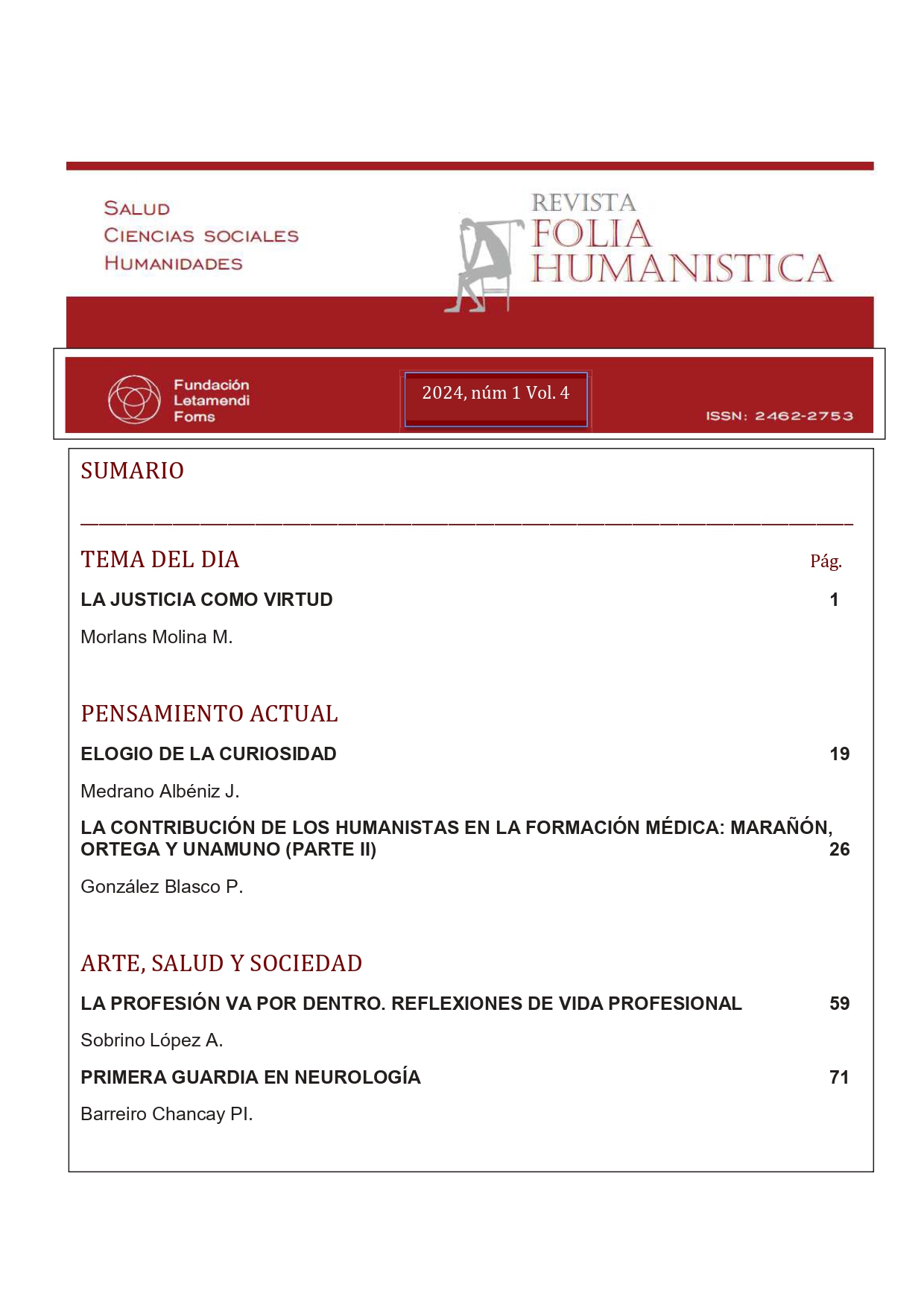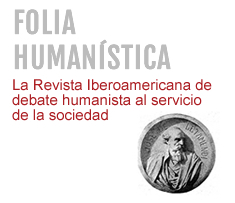La justicia como virtud
DOI:
https://doi.org/10.30860/0106Keywords:
Justice, Interpersonal relationship, Virtue, Common good, EqualityAbstract
The bioethical thought has introduced two essential ethical principles: respect for persons and justice.
The principle of respect has transformed the clinical relationship and health research, ensuring informed consent and protecting the rights of participants in biomedical research. In Spain, the recent euthanasia law strengthens individual autonomy in decisions about one's own life and health. However, while the principle of respect is tangible and directly experienced by citizens, justice is perceived as abstract and distant.
Justice, as described by Diego Gracia, is broken down into: justification of the life project (personal perfection), shared social value (respect for the life projects of others), theoretical elaboration (different types of justice: distributive, retributive, commutative), and practical experience (application of theories to reality and justice as a virtue).
Aristotle considers justice as the supreme virtue, essential for eudaimonia or happiness, as it includes and requires all other virtues. Justice manifests in coexistence and becomes concrete in the exemplary conduct of individuals who promote the common good. In personal and social relationships, equitable justice and dignity are crucial, although justice often remains more abstract compared to respect and autonomy.
Justice must be integrated into everyday life and personal behavior as a virtue, promoting fair and equitable treatment in society. Thus, dignity and justice are intertwined as foundations of a morally and socially valuable life.
References
Gracia D. Conclusión: El principio de justicia. En: Fundamentos de Bioética. Madrid: EUDEMA; 1989. pp. 285-293.
Aristóteles. Ética Nicomáquea. Libro V. Madrid: Ed. Gredos; 1985. pp. 238-268.
Comte-Sponville A. Petit Traité des grandes vertus. La justice. París: Presses Universitaires de France; 1995. pp. 80-113.
Gomá J. Universal concreto. Método, ontología, pragmática y poética de la ejemplaridad. Barcelona: Taurus; 2023.
Goñi C. Pico della Mirandola. Discurso sobre la dignidad del hombre. Barcelona: Arpa; 2020.
Kant I. Fundamentación de la metafísica de las costumbres. Madrid: Tecnos; 2005
Macklin R. Dignity is a useless concept. B Med J. 2003; 327: 1419-20.
Hottois G. ¿Qué papel tiene el principio de dignidad en la toma de decisiones? En: Boladeras M. Bioética: la toma de decisiones. Cánoves i Samalús: Proteus; 2001. pp. 17-48.
Gómez Pin V. La dignidad. Lamento de la razón repudiada. Barcelona: Paidós; 1995.
Gomá J. Dignidad. Barcelona: Galaxia Gutenberg; 2019.
Informe Belmont. Principios éticos y orientaciones para la protección de sujetos humanos en la experimentación. DHEW Publication Nº (OS) 78-0012, 1978.
Durand G. Introduction générale a la bioéthique. Histoire, concepts et outils. Principe de justice. Montreal: Fides; 2005. pp 269-280.
Puyol À. El derecho a la fraternidad. Madrid: Los Libros de la Catarata; 2017.
Armengol R. Jesús i Sòcrates. Dos mestres per al futur de la humanitat. Barcelona: Ediciones Carena; 2021.
Rawls J. Una teoria de la justícia. Gerona: Papers amb accent; 2010.
Mill JS. Sobre la libertad. Madrid: Alianza Editorial; 2018.
Piketty T. Una breu història de la igualtat. Barcelona: Edicions 62; 2021.
Downloads
Published
How to Cite
Issue
Section
License
Copyright (c) 2024 prueba

This work is licensed under a Creative Commons Attribution-NonCommercial-ShareAlike 4.0 International License.
La Revista Folia Humanística se adhiere a Creative Common en la modalidad: Reconocimiento – NoComercial – CompartirIgual (by-nc-sa): No se permite un uso comercial de la obra original ni de las posibles obras derivadas, la distribución de las cuales se debe hacer con una licencia igual a la que regula la obra original.








